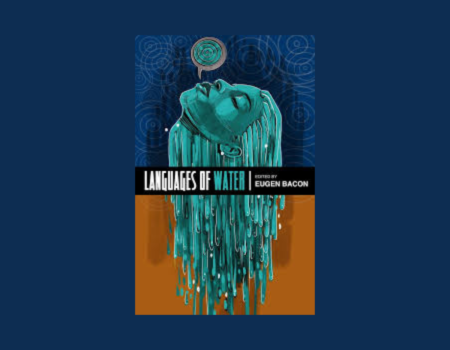Choice is a fascinating thing. On the surface, it simply is the ability to choose something, make a decision, say that this is the thing you want, or this is the thing you will do and then getting to have it or do it. Simple, really. Except a lot of the time it really isn’t. When we choose a thing, whether we care to admit it or not, it is undeniable that we are affected by a myriad of factors, internal or external, intentional and unintentional. You make a choice, and it remains to be seen whether you really wanted the thing or if it was wanted for you. And this is as adults, with full autonomy and control of our lives. It is a wonder that we can recognise how complicated the concept of choosing is and still not be kinder to children who depend so fully on us to help them make the right ones or rather, to choose the right things for them. We take advantage of them instead and rob them of what little agency they have. As Nwabineli writes, “there is no perfect way to describe what it means to exist in a body that is not your own, that never really was”. A harrowing thing for any child to ever have to feel and precisely what the protagonist, Anüri Chinasa, feels from the very moment she’s old enough to understand what it means to be alive and be her own person.
In Allow Me to Introduce Myself’, Onyi Nwabineli sizzles. The story follows Anüri, a 20-something-year-old British-Nigerian girl who, to put it very simply, grew up online and hated every minute of it. That is to say, Anüri grew up as the subject of her step-mum Ophelia’s mommy blog to which millions of people were privy. At the very beginning of the book, readers are introduced in no uncertain terms to Ophelia’s mommy blog empire consisting of a blog originally, and then ballooning into YouTube, Snapchat, Instagram, Twitter and other social media accounts with millions of followers resulting in all kinds of products from natural hair care products to books, socks and even desktop wallpapers, all about and only featuring Anüri. Included for free is also, one kidnapping scare and of course, several inappropriate and borderline scary advances from adults on the internet. To this, all Ophelia can do is block, ignore and keep on keeping on. Her empire will not be compromised. At age fourteen, we are told Anüri decided she’d had enough and by the time we meet her properly she’s a severely depressed, complicated mid-20 something old deeply committed to fully regaining control of her life and perhaps more importantly to her, her much younger sister Noelle’s. As it turns out, following Anüri’s point blank refusal to engage with the blog any longer once she turned 14, Ophelia turned her attention to Noelle and this, Anüri will simply not have. She is ferocious in her pursuit of her and her sister’s freedom from a watched life.
It’s a gorgeously written book. Nwabineli, as ever, is sharp and witty. The language is intentional, and every sentence feels like a revelation of some sort, not just about Anüri but about the other characters too, Nkem, Anüri’s father, Ophelia, and her best friends Simi and Loki, all who are in many ways affected by the repercussions of Ophelia’s choices. Particularly interesting is the fact that while the book is written mainly from Anüri’s perspective, it is overall written from a third person omniscient point of view. We are given snapshots into the minds of the other characters in bite-sized chapters. This is a frankly brilliant approach. Anüri, we know of course is appalled by the entire thing, severely affected by having grown up in the public eye to the point where she considers and eventually pursues a PHD in the adverse effects of children having a social media presence. What we do not know however, is what everyone else thinks and these mini chapters are a great way to fill in the gaps. With a subject matter like this, readers benefit from knowing what everyone was thinking. Why would Ophelia subject her stepdaughter and daughter to this cursed life and why would Nkem go along with it?
For Ophelia, what started out as an innocent way to share her love for her stepdaughter with family and friends quickly spun out of control and the benefits were too good to ignore. Nwabineli describes it as “reaching the summit of a perilous peak”. To the point where Anüri’s name is bastardised to ‘Nuri’ for the sake of ‘analytics’ and when a six year old Anüri wants to have a regular kids birthday party, she is told no, she must smile and pose for the camera crew present to document the whole thing. Too much ambition is a disastrous thing and it’s interesting to see inside Ophelia’s mind even as her relationship with Anüri breaks down until it doesn’t exist anymore. She carries on under the guise of having made good choices for Anüri and subsequently, Noelle. The irony. As for Nkem, when Anüri’s mother, Kainene, died he became a grieving man with a baby who had not a clue what to do. It is no wonder he latched onto this young nanny who came into his life and never let go, not when she harmlessly suggested a blog and not when it was steadily growing out of control and not even when he saw it visibly destroying his family and his daughter. He brushes off concerns from Anüri and her maternal grandparents who she runs away to multiple times, and is seemingly content to become a passenger in his own daughter’s life. It’s fascinating to read – a keen observation of the never ending impacts of grief.
The story is expansive. Beyond seeing how growing up online immediately affected Anüri, because we meet her as an adult, we see how it affects her long-term – the kind of important social commentary that is needed as we witness the first and second wave of grown up online kids in real life. We see the impact viscerally. Anüri is a nervous, anxious person. Readers become familiar with this through Anüri’s conversations with her lawyer and therapist of a sort, Ammah, who is helping her take legal action against Ophelia to have custody of Noelle and also to retrospectively reclaim all the material of her that exists without her consent. Anüri is also not often a good friend to Simi and Loki. She is impulsive and lashes out, often turning around to completely regret her actions. Her friends are kind and understanding but it is a jarring realisation to come to. She is also a deeply mistrustful person when it comes to romantic relationships. Having never really had a long term relationship by the time we meet her, Anüri is content with the presence of her online pay pigs, old men with whom she messages all sorts of things and who pay her in return. That is until she meets Christian, who with her friends, helps her see that there can be more to love and life. Despite all this, one thing Anüri is, is free. While she may have much to work through, she really does enjoy liberation from Nkem and especially, Ophelia’s opinions of her. She always, always exercises her right to choose. Whether or not the choices she makes are good is another discussion altogether, but at least she gets to make them for herself, and that can only be a wonderful thing.
This is the sort of story that gives us lots to think about. It wouldn’t be unreasonable to say that it’s the sort of book every parent, particularly ones who feel compelled to share their children’s lives online, should read. Even beyond that, it is probably the sort of book everyone who has a child in their life should read. At a point in the book, in response to Anüri’s grandparents’ questions, Nkem makes an off the cuff statement that reads, ‘Privacy, nne? She’s only a child”. What a shame it is for anyone to think this way. We all are entitled to privacy and care, children too. It is a thing we mustn’t ever forget. Many have said a marker of a society’s progress is how it treats and protects its children and they all would be correct. It’s essential now, more so than ever. In the literary world, the second book curse really is a phenomenon with authors often never being able to quite hit the mark as they do with their debuts. Not Nwabineli though. As with her debut, Someday, Maybe (also an incredible read), she does an excellent job of tackling this sensitive and important topic with a great deal of care, finesse and a little bit of humour. It is absolutely a must read.
Anna-Maria Poku
Anna-Maria Poku is a Ghanaian writer and book reviewer. She writes about love, life and all the things in between. She has works in publications including Litro, Lolwe and Afreada. When she's not writing or reading, you can find her on @annasreads across socials.




![[Featured Post] For the Love of Stories](https://jaylit.com/wp-content/uploads/2025/03/seven-shooter-hPKTYwJ4FUo-unsplash-scaled-450x350.jpg)
